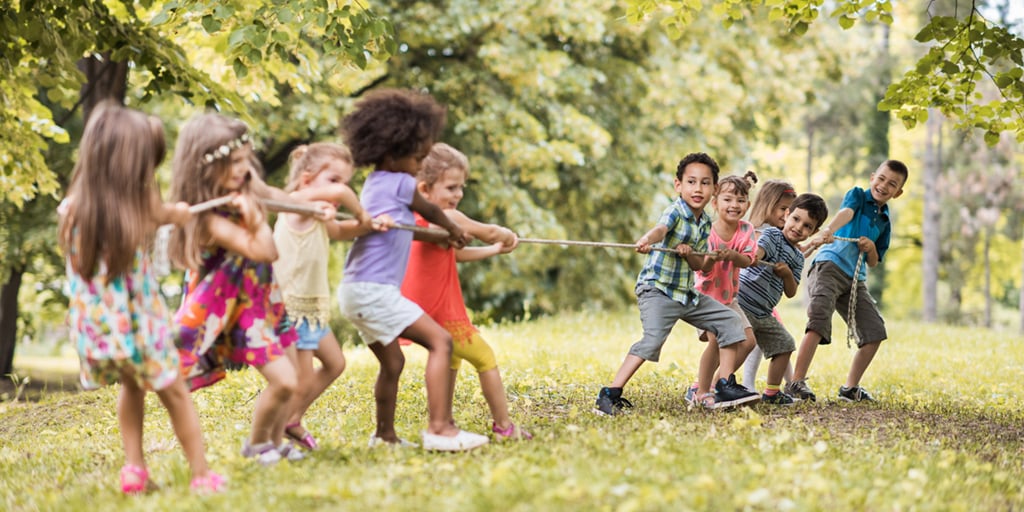
Which works better for students...competition between peers to motivate them to try harder or cooperation between them in order for them to learn from one another. This has been a bit of a “debate” in the education world, which I feel is unfortunate.
This kind of “either/or” thinking is very common in our country right now. You are either “red” or “blue.” You are either “woke” or lost in the past. You are either a “believer” or you are not. There are many reasons for these stark divisions we see in our world and the “either/or” mentality is one that is prevalent amongst many people. It even happens in education...think about the phonics vs. whole language debate, the direct instruction vs. constructivist learning debate, or the controversy of whether students should learn cursive or not. Dichotomies like this can, in my opinion, be very harmful to really examining an issue.
The truth is that most of the time the “truth” or reality of these debates has a central ground that allows both of the options to have merit. In education, our heads spin at times because we read one research article supporting one side and the next day read another research article supporting the other. Who are we to believe?
I would contend that both of these have merit, both need to be a consistent part of the classroom.
One of the challenges on the division of these and why it is too often an “either/or” is because of the philosophical, even political, ideals of our parents. The “competitive” mindset is rooted in capitalism for some people; for others we should teach “cooperation” not just for educational outcomes but because that is rooted in creating a common good for our country. If parents feel that our schools lean too far one way or the other, they critique us for being “too soft” or “too hard.”
If we are able to find a balance between the two, it can be a great thing for students. Here is a little bit of how and why each needs to be used instructionally by teachers:
Competition is good for classrooms...Because, if done correctly, it can be motivating. The real key is fostering a sense of competition that is rooted in a growth mindset. Instead of students competing based on only a set standard, competitions can be structured through the amount of individual growth each student has. This is motivating for all students. What happens with just straight competitions, such as the most books read, is that most students feel it is unachievable. If we want to use competition as a motivator, that isn’t the best way.
Group or class competitions are another good example of how competition can be used to foster a healthy desire to grow as students are. These allow everyone to work together and minimizes the deficits that one individual student might have.
One final reason to work through competition in the classroom...we can model positive behaviors for them. Losing does not come easy for some students, so to “lose” in the confines of a classroom allows the teacher to work through losing with grace and winning with humility.
Cooperation is good for classrooms…Because, these are workplace skills that students really need. The ability to get along with coworkers is a key social skill that most students will need in the future.
Cooperation comes more naturally in the classroom in my opinion. This is because learning is a social endeavor. Students learn best when allowed to talk about what they are learning. If students cooperate together as they learn, they will learn more deeply and fully.
The learning part of this is the really selling point for why we should implement cooperative learning more and more in our classrooms. There are many models for this, such as Kagan Cooperative Learning, but teachers should be sure to look for something structured. Students need to learn how to work cooperatively, therefore, they must be taught how to do it. Structured models help to support this.
My assertion would be that both of these philosophies have a role to play within a well-functioning classroom. As always, teachers will know their students the best. Some combinations of students will lend themselves to being cooperative and others will feed off being competitive. Just remember, it is not “either/or” when it comes to the decision about which to do in the classroom...both have a role to play.
Stay inspired and informed by subscribing to our educator blog.>>



